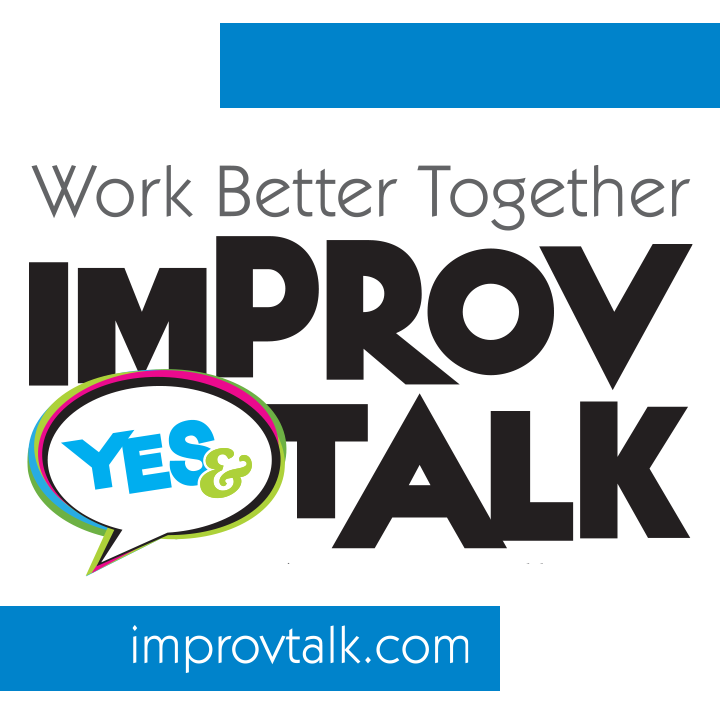How One Company Culture Evolved to Work Better Together
Gallop Research continues to show us that increasing employee engagement at work will increase your bottom line. Especially if you have leaders in place who can make it happen.
When employees are not engaged, they are less productive, make more mistakes and are more likely to leave the company. Even worse, if you have a toxic environment, bullies, gossip, broken lines of communication, you are probably going to get excessive absenteeism and even lose your best employees.
The good news is that more leaders are catching on.

Brian C. Neuwirth, President of Unex Manufacturing, has made significant contributions to the material handling industry and was chosen as the 2018 Outstanding Young Professional from the Material Handling Institute (MHI) at MODEX 2018.
Everyone Matters
At ImprovTalk we work with organizations to help people work better together, especially during times of change. We put some of our principles to the test by talking to someone who has been part of a successful evolution. In this case, from autocratic-style leadership to one that is more inclusive and empowering. Everything we help people experience and all of the stories we tell revolve around communication. How each individual’s ability to communicate and be a good team player, from the highest position to the line workers, impacts the bottom line.
One of the Good Guys
We talked with Brian C. Neuwirth, President at Unex Manufacturing, Inc. based in Lakewood, New Jersey.
Founded in 1964, Unex is a family owned company that has evolved over the past few years. They provide solutions to maximize space usage, increase pick rates and improve ergonomics. “We were an old school manufacturing company, which was very much a ‘this is what you are doing and do it!’ organization. That is how mfg. typically was 50 years ago. We have worked hard to evolve from where we were,” said Neuwirth.
At Unex they have worked hard to focus on collaborating, over-communicating, building a strategy and a vision together to get the buy-in up front. Then they actually empower employees to go and do it. “That is when you are going to see great things happen because they are bought in,” said Neuwirth.
Key to Success
In our sessions we spend a lot of time working on listening skills, becoming better collaborators and how their communication impacts others. Yes, And, one of the keys to success that Brian cites at Unex is good old fashioned face-to-face communication. “You have to make sure you are communicating, but also making sure you understand the impact your communication and what you are doing is having on the employees,” said Neuwirth.
As he explained it, “if you have processes that aren’t on the forefront of where your growth is going to be coming from, you need to create initiatives to make improvements to those processes. But if departments are not working well together, and people are not communicating the new initiatives well, you are essentially wasting time and money.” He went on to say, “We don’t want to put words in people’s mouths but we want to make sure they can say, this is WHY we are doing this and this is where we are going.”
That is why they started focusing on face-to-face communication. “When we have an important process change, said Neuwirth, “we make sure that everyone knows, this is the destination and with everyone doing their piece, we can get there. We make sure that the managers and trainers understand not only the destination, but why the destination is important to them – to their departments. And, that they understand the impact of deviating from that. Then they can communicate all of that in their own words in a more meaningful way.”
No Excuse
We talked about the issues that arise from today’s technology, and how it has affected their communication. He acknowledged that with people working virtually from home and abroad it can be difficult getting people together. Twenty years ago people were working remotely too. “But now,” Neuwirth said, “we’ve never had more ways for people to communicate – between instant messaging internally, skyping, sharing screens, and video conferencing. Plus now they have virtual offices and all files are available so it doesn’t matter here, there or wherever, there is no excuse not to have face-to-face meetings, virtual or live.”
Morning Musters
One of the things Unex has done to increase daily face-to-face communication is having “Morning Musters.” These mandatory morning production meetings, or musters, are in place to make sure that problems are getting solved or to see if anyone is getting stuck. That kind of communication doesn’t happen when people are working in front of machines or computers for eight hours a day.
“We have ‘morning musters’ to get people on the same page,” said Neuwirth. “Hey, we have an issue with this machine, it’s down, so people understand o.k. if that machine is down and it feeds this process and this process feeds my process, now I know there is going to be a delay. If you don’t talk about it – two days from now you won’t have anything to do. Then you are scrambling to do something about that.”
Understand Your Impact
As mentioned earlier, another issue Neuwirth has dealt with around communication is making sure people understand the impact of their communication on the other person or department. “When messages are just blindly sent without regard for the impact, people can get angry and feel like they are not appreciated,” said Neuwirth. “If you are a remote sales person and you just blindly send this in and say, ‘hey, I had this p.o. sent to me three weeks ago and I forgot to turn it in. Oh, and by the way, the goods are expected next week.’ That salesman is just wiping their hands off and now everyone inside has to pull a rabbit out of their hat so the customer gets their goods in time. Those types of interactions can have a lasting impact on your customer and the employees.”
The Cost
We asked Brian what he considered to be the biggest costs to not communicating well within a company. He said that the biggest cost to not communicating well is time. Lost time by having to re-train people if it wasn’t done right the first time. “We make sure we always take the time necessary to train people well,” said Neuwirth. “The other big cost is missed opportunity – by not getting things done in the timeline, what business opportunities are we missing.”
ImprovTalk combines Ellen Schnur’s expertise in business, training and Applied Improvisation, with the lessons Jim learned from great teams and leaders over his 15 year career in baseball. You can reach us at 847-987-6158, [email protected] or at https://improvtalk.com/
